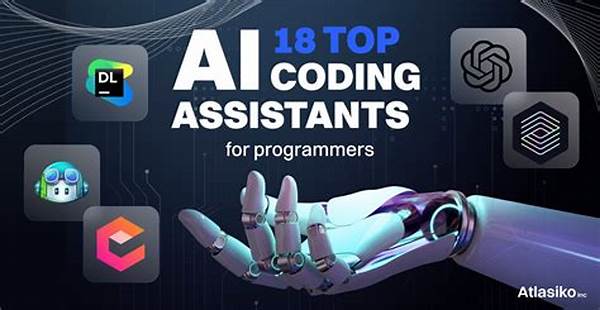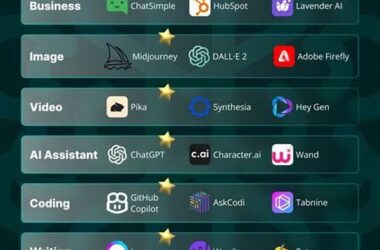New Research Alert: This Popular AI Coding Assistant is Causing Security Flaws in Code!
In today’s fast-paced digital world, AI tools have become indispensable in various fields, one of which is the software development sector. At the forefront of these developments are AI coding assistants, which significantly ease the process of writing code by providing suggestions, automating repetitive tasks, and checking for errors. Yet, it seems there’s a looming storm on the horizon — a new research alert: this popular AI coding assistant is causing security flaws in code!. This revelation is sending ripples through the tech community and raising questions on the real cost of relying heavily on AI for coding tasks.
Read More : Ai Tools Free
For businesses worldwide, coding efficiency is equivalent to competitive advantage. AI coding assistants have thus become the trusted allies of developers aiming to optimize their workflows. However, these tools are not without their drawbacks. The newly published research indicates some alarming lapses — vulnerabilities in the code produced by these AI solutions could serve as backdoors for malicious attacks. This creates a concerning paradox where the very tools meant to enhance security may inadvertently undermine it. The report underscores the importance of human oversight and the critical need for developers to stay vigilant.
In response to this new research alert: this popular AI coding assistant is causing security flaws in code!, it is crucial for companies to reassess their approaches towards AI deployments in software development. Instead of merely relying on AI capabilities, a more balanced strategy that integrates human expertise can prove much more effective. Technology serves as a means to an end, but human intuition, creativity, and ethical judgment are irreplaceable — aspects that AI, at its current state, can’t replicate.
Addressing the Security Concerns
The research has shed light on various instances where AI-driven code suggestions have introduced potential security issues inadvertently. These findings are based on extensive testing and analysis of AI-generated code samples, offering a stark reminder that AI tools are still evolving.
—
Delving Deeper into the Security Flaws
AI’s ability to sift through vast amounts of data and provide coding suggestions quickly has made it a favorite tool for developers. However, as the new research alert: this popular AI coding assistant is causing security flaws in code! highlights, there are significant risks involved. The research, which meticulously analyzed code snippets from multiple AI coding platforms, revealed that even the most popular tools occasionally suggest solutions that are insecure, making the systems vulnerable to attacks.
One of the pressing concerns is the AI’s predilection for picking solutions that superficially appear correct but fail under stringent security checks. It paints a vivid picture of how these systems might prioritize efficacy over security inadvertently, highlighting a significant oversight in the training of these algorithms. Moreover, the lack of contextual understanding means that nuanced security concepts can often elude the AI’s comprehension.
These security flaws largely stem from the training datasets provided to AI systems. If the datasets include insecure code snippets, the AI learns to propagate similar patterns, leading to vulnerabilities such as SQL injections or improper input validation. This emphasizes the importance of curating clean, secure datasets for AI training, a major area requiring immediate attention.
The Role of Human Oversight
The emergence of this new research alert: this popular AI coding assistant is causing security flaws in code! has also sparked debates around AI’s role in replacing human coders. While AI can efficiently handle routine and monotonous tasks, the nuanced, context-heavy decision-making process is still an area where human intervention is crucial. Developers need to apply their expertise to verify AI-suggested code, ensuring it meets the required security standards and aligns with best practices.
Integrating AI into the software development lifecycle should be strategic, with programming tasks and decision-making processes delineated clearly. AI could handle specific functions, such as sorting through data or performing mundane syntax checks, while humans can focus on reviewing the logical soundness of the solution and evaluating security concerns.
Mitigation Strategies for Developers
To combat the security risks uncovered, developers are encouraged to adopt specific strategies. Firstly, conducting thorough manual code reviews, especially for AI-generated code segments, is essential. Incorporating robust security testing tools and protocols can further safeguard applications from potential vulnerabilities. Training and upskilling developers to understand AI-generated outputs and their potential pitfalls will empower them to anticipate issues proactively.
An interesting proposition from the research is the development of hybrid models where AI-generated code undergoes rigorous machine learning checks focusing on security compliance before deployment. This dual-validation system bridges the gap between speed and safety.
Training AI on Secure Coding Practices
Given the escalating concerns from the new research alert: this popular AI coding assistant is causing security flaws in code!, it is vital to invest in training AI on secure coding practices explicitly. By refining training datasets to prioritize secure coding paradigms, AI systems can become formidable allies rather than potential risks in software development.
AI developers could benefit from collaborating with security experts to construct comprehensive datasets embodying both efficiency and security principles. Furthermore, ongoing refinement and updates to these systems will ensure they adapt to newer coding standards and security threats, maintaining their effectiveness over time.
Technology is But a Tool
In conclusion, AI coding assistants stand as remarkable technological achievements, promising to revolutionize the software industry. Yet, this new research brings into clear focus the significance of balance — leveraging AI’s capabilities while maintaining human expertise as a cornerstone in coding practices. This duality fosters both innovation and safety, ensuring that technology remains a faithful aide rather than a liability.
—
Actions to Mitigate Security Risks
—
Understanding AI’s Challenges in Coding
The recent revelations from the new research alert: this popular AI coding assistant is causing security flaws in code! have ignited a vital debate within tech circles. It underscores the dual benefits and challenges of integrating AI into software development. While AI’s prowess in rapidly processing and synthesizing information is unmatched, the risks of unintended security flaws cannot be overlooked. The article aims to dissect these findings and provide guidance on navigating these concerns effectively.
At the heart of AI’s challenge is its learning mechanism. AI systems derive their problem-solving capabilities from vast datasets fed during training. If these datasets are inadequately curated, AI inadvertently learns both the good and the bad. This poses a significant risk since AI isn’t inherently capable of discerning right from wrong unless explicitly programmed to do so.
The new research alert: this popular AI coding assistant is causing security flaws in code! distinctly points out that even leading AI models aren’t exempt from suggesting insecure coding solutions. This comes as a wake-up call for the tech industry to reconsider how AI systems are trained and deployed. Instead of relying solely on AI, adopting a balanced approach can mitigate these issues effectively.
Collaborative efforts between AI developers and cybersecurity experts must be prioritized. These partnerships can create a robust framework where security is embedded within AI functionalities from conception to deployment. This ensures that AI does not operate in a vacuum but rather as an integrated component of a broader, secure ecosystem.
—
Illustrative Scenarios of AI-Induced Security Risks
The exploration of AI-related security concerns serves as a pivotal learning journey for the tech industry. The balance between rapid code deployment and security represents a tightrope that every tech giant must walk. By employing a hybrid model where man and machine work in concert, the future of coding holds the promise of both innovation and integrity.



